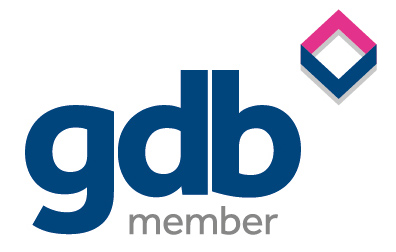Harvey John
Unit 2 Ferry Wharf
Hove Enterprise Centre
Basin Road North
Portslade, East Sussex
BN41 1BD
If you recruit someone who is not right for your business, it will cost you time and money.
Hiring people can be a tricky business, and it has been known to go horribly wrong.
The worst hire was made in 45 BC when Julius Caesar appointed Brutus as a Praetor (Magistrate). Within a year, Brutus repaid the favour by stabbing Caesar to death along with his co-conspirators. “Et Tu, Brute?” queried Caesar, probably wishing he had offered him a higher starting salary.
Fortunately, it is rare for hiring mistakes to lead to an assassination, but they can still be very costly.
How do you calculate the cost of a poor hiring decision?
Countless businesses and organisations have regretted an appointment – sometimes, it just doesn’t work out.
There are multiple reasons why a new hire might not work out. Maybe the applicant does not actually possess the skill set they described in the interview. Maybe there is a reason why the candidate has changed jobs five times in the last four years. Maybe the new person is out of their depth?
Sometimes the new joiner might have taken the wrong job. Maybe the job is not quite what they thought it would be? The result is that they quickly become disinterested or unmotivated.
It happens. But when it doesn’t go smoothly, isn’t it just a case of politely ending the deal before the end of the probationary period and starting again? Aside from being frustrating, surely no harm is done?
Sadly not. It is surprising how many valuable resources are wasted when an appointment doesn’t work out.
The Statistics
A 2017 poll by the Recruitment & Employment Federation (REC) found that when a company takes on a mid-manager with a salary of £42,000 per annum, the recruitment costs amount to £132,015.
It is a shocking statistic and makes perfect sense when you factor in training costs and the lost productivity when a new person settles in a new role, as well as the time and money it takes for the recruitment process itself.
The report from REC delves deeper into the issues raised by a bad hire and is clearly a common problem. In its survey of 501 HR decision-makers, it found that almost nine out of ten HR professionals have worked for a business that hired the wrong person for a job. Bad hires are not isolated incidents but frequent occurrences.
As well as calculating a monetary estimate of a bad hire, the REC highlights other detrimental impacts.
Kevin Green, former Chief Executive of REC, wrote: “The potential costs of a bad hire can encompass more than the time and money spent on repeating the recruitment process. A bad hire will have a negative impact on staff morale, a loss of productivity and potentially even an impact on your reputation and brand. All this translates to weakened performance.”
Why does a hire fail?
To ensure you get the right person for the role, it is always worth using a specialist recruitment agency, such as Harvey John. We’re well-qualified to take out the complexities, avoid the common pitfalls and deliver the outcome you need. We have vast experience in matching the right candidate to the position, and you can take advantage of our industry knowledge and extended networks.
Should you decide to recruit directly, REC identifies the common hiring mistakes broken down into the three stages of the recruitment process: defining the role, attracting applications and the selection process. (REC also emphasises the importance of integrating the new person once they start).
1. Defining the Role
-
Inadequate time spent reviewing company needs
Someone leaving the business, a department that is too busy and the desire to grow are all triggers to recruit. But take your time – and think. What do you need as a business? Where are your pinch points? How can the new person make a difference? Ensure the new role maximises value for your business.
-
Misleading job profile
The job advert and description are vital for getting the right candidate. The key is to be honest and create an accurate overview of what the job entails.
If you overstate the needs of the position, you will get overqualified candidates, who may well become quickly bored with the job.
If you do the opposite and understate the needs, you may get more candidates, but most will struggle to do the job.
2. Attracting applications
-
Only accessing a small pool of talent
If you are sourcing candidates without the help of a recruitment agency, it is hard to know where to advertise the role. If you place the advert in the wrong place and you will either receive scant applications or you will be inundated with unsuitable candidates. Without in-depth market knowledge, the likelihood is you will miss out on the candidates who would be perfect for the position.
-
Biased language in the job description
It is a fact that men and women respond differently to job adverts, and language is a major factor. Some words or phrases appeal more to a male than to a female – and vice versa. It is more common to see male-gendered words in UK job descriptions.
-
- Masculine’ words include lead, analyse, competitive, active and confident.
- Feminine’ words include support, responsible, understanding, dependable and committed.
Ensure your advert does not lean too far in either direction.
-
Limited budget
Remember REC’s estimate that a bad hire can cost £132k for a £42k salary job? It’s much better to invest some budget in order to get the right person. It’s far cheaper than rectifying a mistake later on.
3. Selection process
-
Filling the position too quickly
The first person through the door for the interview may tick all the boxes, but there may be someone even better. Obviously, you don’t want to dither and lose an amazing candidate, but don’t rush in too quickly!
-
Failure to verify skills and references
You should always check references. The simple fact is that people can write anything on their CVs and can exaggerate in interviews. It may be a chore, but definitely verify the experience claimed by the candidate.
-
Improper interviewing skills
Unless you are in the HR department of a large company, it is highly unlikely that you will have received training in interviewing. For many, the process is all about gut instinct. It can be effective, but it is a risky tactic.
It is well worth researching interviewing skills before you start the process. These include tips on picking up signals (both positive and negative) from candidates. Red flags might include speaking too negatively about a previous employer, focusing too much on the remuneration package and a lack of knowledge about your company.
One advantage of using a reputable recruitment agency is that the candidates will have already had a pre-interview with the recruiter – they will only send candidates who are the right fit.
-
Unconscious biases
The problem with unconscious bias is that it is, well, unconscious. How do you tackle an issue you are not aware of?
There are procedures you can follow to reduce unconscious bias. Candidate names can be clues of ethnicity or nationality, so removing names from CVs can help, as well as dates of birth. It has been shown that structured competency-based interviews are more effective at reducing unconscious bias. If possible, let another member of your team sit in on the interview process (although not someone who is the same gender, race and age as you!).
You can, of course, avoid the pitfalls by enlisting the help of a proven, professional recruiter…
Why use a recruitment agency?
A specialist recruiter will:
- Attract the right people
- Help you properly define the role
- Save you time
- Help you avoid unconscious bias
- Know where to find the talent
- Prevent you from seeing unsuitable candidates
- Advise you on salaries and packages
And save you the cost of a bad hire!
—
David Waddell is Managing Director at Harvey John.
If you would like to see our company updates and industry insights, follow us on LinkedIn.
Check out our latest accountancy jobs.
Harvey John is a specialist Accountancy, Tax & Treasury, and Legal recruiter operating across the UK & EMEA market.
Author

Alongside his commercial responsibilities, David focusses on qualified accountancy recruitment working with an extensive network across accountancy firms as well as commercial businesses on either an interim or permanent basis.
Clients range from boutique practices as well as leading regional and national accountancy firms to SME's, multinational organisations and PE backed businesses experiencing high growth.







